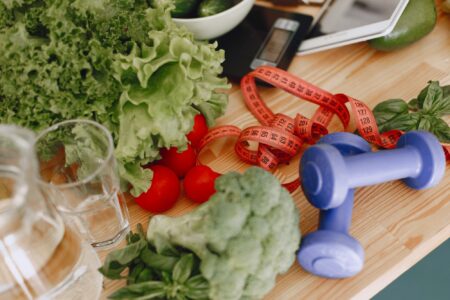Most people need about four to six glasses of water each day. It's important to make sure you're drinking it throughout the day, not all at once. The four to six cups a day rule is generally true for healthy people, and this amount depends on how much water you get from other drinks and foods. Certain health conditions, medications, activity levels, and temperature also affect how much water you need.
Unfortunately, many of us don't consume enough fluids, especially older adults.
Benefits of water
Water keeps the body functioning properly.
Drinking water has many important functions, such as:
- transports nutrients and oxygen to cells;
- expels bacteria from the bladder;
- supports digestion;
- prevents constipation;
- normalizes blood pressure;
- beneficial for joint health;
- protects organs and tissues;
- regulates body temperature.
How much fluid do I need per day?
The average daily fluid intake for healthy people is about 3 liters for men and about 2.2 liters for women. This means that we get some of our fluids from food and we could also drink 4–6 glasses of plain water.
Remember that we also get fluids from food!
Foods that give you water
Your body gets some of the fluid it needs from the food you eat throughout the day. The foods that typically contain the most water are raw fruits and vegetables.
Any fruit and vegetable with a water content of more than 80% is a good choice in terms of fluid intake. For example:
- cucumber (96%) – If you like crunching on cucumbers, that's fine. Cucumbers have one of the highest water contents of all solid foods;
- iceberg lettuce (96%) – Green leafy vegetables provide plenty of fiber, folic acid, and vitamin K. When it comes to fluid intake, crisp iceberg lettuce is best;
- celery (95 %) – In addition to being high in water, celery is also a good source of fiber;
- radish (95%) – this root vegetable is flavorful, full of vitamin C and fiber, but low in calories;
- tomato (94 %) – Many people consider tomatoes to be vegetables, but they are actually the fruit with the highest water content. They also contain lycopene, which helps prevent cell damage. In addition, lycopene consumption has been linked to a reduced risk of cardiovascular disease, diabetes, osteoporosis, and infertility;
- cabbage (92%) – all cabbages contain a lot of water when raw and even more when cooked (94%);
- spinach (92%) – great in salads and smoothies; in addition to its high water content, it is full of nutrients, including calcium, magnesium, iron and potassium;
- watermelon (92%) – We all know that watermelon is high in water. In addition, watermelon, like tomatoes, is a very good source of lycopene. Lycopene consumption has been linked to a reduced risk of cardiovascular disease, diabetes, osteoporosis, and infertility.
Factors that affect the amount of fluid needed
 Activity level: When you exercise, you lose water through sweating. In this case, you should increase your water intake. People who participate in long-term physical activity, such as marathons, often need to replace both water and sodium losses. In this case, you should drink mineral water.
Activity level: When you exercise, you lose water through sweating. In this case, you should increase your water intake. People who participate in long-term physical activity, such as marathons, often need to replace both water and sodium losses. In this case, you should drink mineral water.
Outside temperature: In hot weather, you are likely to feel thirsty more quickly.
General health and medications: It is possible to consume excessive water if you have certain health conditions, such as thyroid, kidney, liver, or heart problems, or if you take medications that cause water retention, such as nonsteroidal anti-inflammatory drugs, over-the-counter pain relievers, and some antidepressants.
Age: Older people don't feel thirsty as easily as younger people. This can be a problem if they are taking medications that can cause fluid loss.
How to recognize dehydration?
Because the body needs enough fluids to stay healthy, dehydration can make you feel unwell. Symptoms of mild to moderate dehydration, or lack of fluids, in adults and older children include:
- thirst – thirst is usually one of the first signals that the body needs fluids;
- headache – Dehydration can cause headaches. Some people experience dehydration headaches more than others;
- dry mouth – your body produces less saliva when you are dehydrated, which is why your mouth and tongue may feel dry;
- infrequent urination – Urination is one way that fluid leaves the body. When you are dehydrated, less fluid is excreted from the body. In addition, dehydration can cause the kidneys to retain fluid, which also leads to less frequent urination;
- dark-colored urine – when you are sufficiently hydrated, your urine will contain more water and be lighter in color. When you are dehydrated, your urine will be more concentrated and darker;
- dizziness – dehydration reduces your blood volume, lowering your blood pressure. This prevents adequate blood flow to the brain and can cause dizziness;
- tired or exhausteds – when you are dehydrated, your tissues have less fluid than they need to function, which can make you feel tired or exhausted.
Too much of a good thing is not good
You can go too far with anything, and drinking water is no exception. Excess fluid puts a strain on the kidneys. If the kidneys are unable to handle the excess fluid, the blood becomes thinner, the amount of plasma increases, and the heart works harder. This condition is called water intoxication. Water intoxication can lead to headaches, vomiting, cramps, high blood pressure, and difficulty breathing.
We are moderate in everything and monitor how we feel and listen to our doctor's recommendations!
Sources:
https://www.health.harvard.edu/staying-healthy/how-much-water-should-you-drink
https://www.uclahealth.org/news/article/15-food-that-help-you-stay-hydrated



